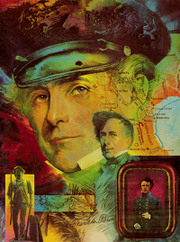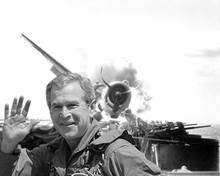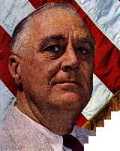It’s a nature vs. nurture debate I’m having with the blogosphere.
While otherwise intelligent people insist there is something uniquely venal in George W. Bush’s approach to governing, I explain the same psychology through history and ideology.
Americans underestimate the power of ideology to control their history. We don’t even credit the major Theses of our political history — Jefferson, Jackson, Lincoln, Teddy Roosevelt, Franklin Roosevelt, and Nixon — as having had ideologies. Yet we teach these things in our schools. The yeoman farmer. The west balancing the north and south. The Union. Progressivism. Liberalism.
Conservatism.
Our most important Presidents did not set out to be ideologues. But each set a new political balance, one which lasted for a generation. They created myths and values which could be used to generate power from the people, even in the face of radically changed circumstances.
So while most liberals look at George W. Bush and see Hitler, I see Franklin Pierce (above, from the U.S. Military). Pierce remains a mystery to many biographers, to this day. The mystery can be cleared up when you know the nickname he used in his 1852 campaign — Young Hickory of the Berkshires. Pierce was, simply, a follower of Andrew Jackson, Old Hickory, so his success was based on memory and organization.
But the America of 1853 was not the America of 1829, and Pierce soon
proved to be a completely ineffectual President. The balancing act of
the Jackson era no longer worked. Both sides were moving toward War,
northern anger rising against southern depredation, and Pierce had no
vocabulary for it. Instead, he kept trying to restore the balance with
things like the Kansas-Nebraska Act,
which only made things worse. While Pierce lost all hope of running
again, the Jackson ideology remained so powerful that a political
clone, James Buchanan, won in 1856.
Pierce, in the end, was a follower, whose ideology made no sense to
the time where he sought to apply it. Bush is the same. The Nixon Thesis of Conflict, the Cold War
assumptions, have nothing to say about our real problems. Yet they
continue to be trotted out, not only here but elsewhere, and people keep winning elections based on Us vs. Them, the Clash of Civilizations.
Why? It’s because ideology is powerful, and everyone close to power must follow in its wake. The personalities of those caught in the disaster don’t matter that much to me. Nor should they matter to you.
What should matter, instead, are the myths and values being built
right now to address the real Crisis of our Time. That’s what Al Gore’s
Live Earth was about. It’s what the whole netroots movement is all about. It’s what Barack Obama’s campaign is actually all about.
What are our new myths? There is the myth of the Internet, with its
values of consensus. There is the myth of the Earth, and its values of
balance and science. There is the myth of the Netroots, and its values
of virtual organization. And there is the enduring American myth of the popular will.
History, I believe, will show that these were the important events
of our time. Not Iraq. George W. Bush is not the second coming of
Hitler.
He’s Franklin Pierce.














Well, there’s a reason GWB may be Franklin Pierce. According to Wikipedia, Bush’s Mom- nee Barbara Pierce, She is a direct descendant, great-great-granddaughter, of James Pierce, Jr. who was a fourth cousin of Franklin Pierce.
So it is in the blood
Well, there’s a reason GWB may be Franklin Pierce. According to Wikipedia, Bush’s Mom- nee Barbara Pierce, She is a direct descendant, great-great-granddaughter, of James Pierce, Jr. who was a fourth cousin of Franklin Pierce.
So it is in the blood
Geneology is fun.
But Franklin Pierce was a genuine war hero, as the picture shows, a Brigadier General during the Mexican War. (When might Lou Dobbs get us into the Second Mexican War, I wonder?)
Geneology is fun.
But Franklin Pierce was a genuine war hero, as the picture shows, a Brigadier General during the Mexican War. (When might Lou Dobbs get us into the Second Mexican War, I wonder?)
You’re not the only one who sees the Pierce parallels, as this was a big feature on Robert Wuhl’s Assume the Position 201 comedy/history program. I don’t think being a Brigadier General during the Mexican War qualifies one as a war hero. In the 1840s, one could still effectively “buy” ranks of that sort.
You’re not the only one who sees the Pierce parallels, as this was a big feature on Robert Wuhl’s Assume the Position 201 comedy/history program. I don’t think being a Brigadier General during the Mexican War qualifies one as a war hero. In the 1840s, one could still effectively “buy” ranks of that sort.